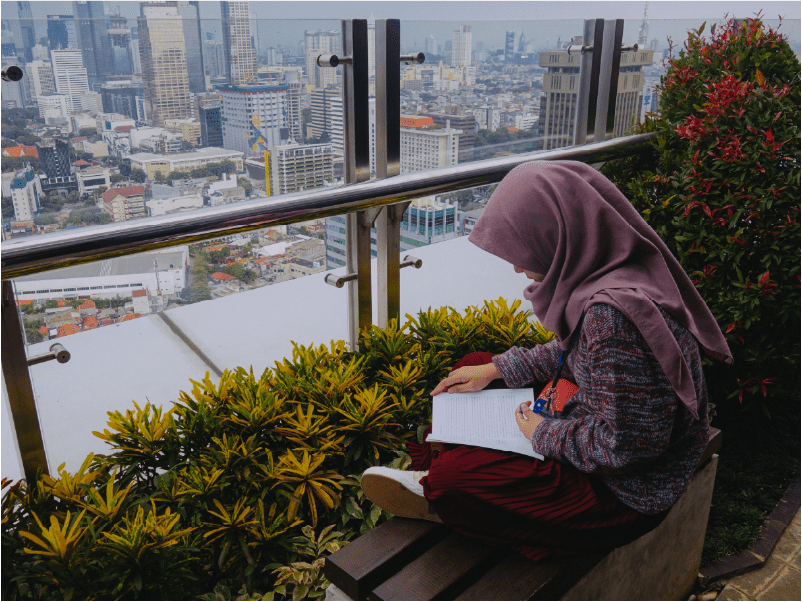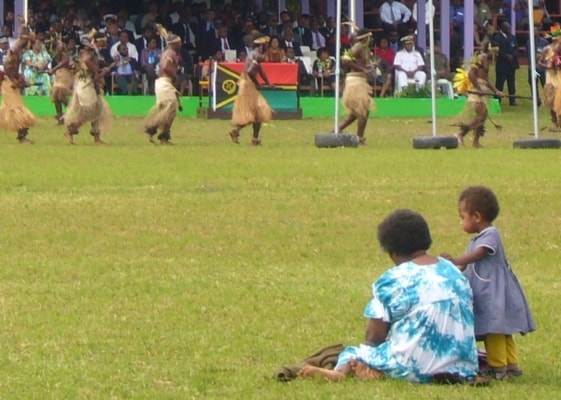Catatan dari penelitian ini juga tersedia dalam bahasa Indonesia. Silakan unduh dokumen PDF di sini.
Women are active in grassroots political and social activity, yet they remain under-represented in legislatures. Women filling quotas disproportionately come from ‘elite’ backgrounds, leading to a lack of diversity of women’s experiences and interests in decision-making bodies. This DLP project seeks to understand why ‘grassroots’ women do not get elected, drawing comparative insights from Indonesia and Sri Lanka, and its early insights are presented in the following two-part research note.
Research approach:
Existing research on elected female representatives reveals the different pathways of women entering electoral politics. We take a different approach by also talking with women active at the grassroots to understand why they have not taken a similar path. In-depth interviews with two types of women – those who have and have not entered politics – reveals key factors influencing women’s participation in formal politics.
This short research note outlines the preliminary findings from case-study interviews conducted in Medan, Indonesia (October to December 2020). We interviewed 16 women (1-2 times), comprised of: 7 current (including incumbents) or former members of the Local People’s Representative Council (DPRD) at the City and Provincial level; and 9 leaders of various organisations, including religious groups, community/ethnic organisations, and feminist NGOs who have not contested an election. Medan is a diverse city, and respondents included ethnic Chinese, Batak, Karo, Minang, Tamil, Melayu among others. Seven respondents were Muslim (the majority religion in Medan), the remainder a mix of Christian, Catholic, Hindu, Buddhist, and Confucius.
Our early analysis reveals nine key findings:
Building the right ‘infrastructure’ to enter politics takes foresight and planning. Women from the grassroots said they lacked the infrastructure for politics: that is, political networks/allies, capacities, resources (mostly financial) and relationships with the community. Extensive social activity does not easily translate into political opportunity, due to: such activities lacking ‘visibility’; communities served by organisations not mapping onto electoral boundaries; capabilities being mismatched or under-recognised in the political field; and priorities such as women’s empowerment not translating into political capital. Building the right infrastructure requires foresight of future political ambitions and purposeful planning years, if not decades, in advance.
Political apprenticeship starts early and entails much more than learning skills. Women politicians referred to early experiences of being encouraged to speak up, to feel they were equal to boys and men, to fight for their rights. The inverse of these opportunities is the socialisation of most women, to be meek, put everyone else first, and to abide by patriarchal norms. Political apprenticeship also entails developing the dispositions and sensibilities to talk to people at the ‘grassroots’, and to understand the complex relations of communities. Instilling a sense that one can become a political leader (as a possibility of personhood) hence starts early, and partially explains why women from political families tend to have greater success in politics.
Money is needed to win elections, but money politics is only one strategy. Money is indispensable for campaigning costs, but giving cash directly to voters is neither an essential strategy, nor necessarily a successful one. Women elected into councils emphasised the importance of connecting with the community, of ‘going down’ to the grassroots, sharing one’s story and listening to theirs. Gifts and souvenirs were in some places expected as part of this relationship building, but genuine connections reduced the overall cost. Constituencies can be built that are large enough to get elected without vote-buying, knowing that a proportion of voters will inevitably vote according to how they are paid. Educating voters and reducing their cynicism of politics are strategies to reduce the importance of cash. The cost of elections was the most consistent reason given for not entering formal politics; women who had never contested an election tended to emphasise direct vote-buying much more than those who had contested. While there may be several reasons for this, ‘money politics’ is culturally complex, and is no simple explanation for women’s political under-representation.
Compatibility between political and social sphere is a determining factor. The relationship between politics and religion often determined whether women felt able to pursue a political career. For some, there is no separation, and religion is a means to enter the homes of people and to demonstrate ‘leadership’ in a holistic sense. For others, their religion is explicitly apolitical: a survival strategy particularly for ethnic Chinese. Some churches offered leadership opportunities for women, while in others, female leadership was discouraged. Differences in compatibility between religion and politics map onto ethnic differences, and hence influences the representation of minority women.
Apart from religion, some respondents ‘felt’ negatively about politics, which was seen as oppositional to social activity. Others saw politics as a natural extension. For some activists, party politics ‘divides’, particularly around ethnicity, religion, race and social divisions (SARA), and is a dirty game to be avoided. Some aimed to influence policy making and legislative agendas from civil society, but were at times frustrated by the lack of responsiveness by political leaders. The ways women understand the ‘political’ sphere in relation to other spheres influences their willingness to engage in political processes.
Student politics is a pathway into formal politics, but one few women tread. Elected women representatives received early political exposure and training through student politics, particularly in the movements for democracy (reformasi) in the late 1990s. Student politics remains an important part of university campuses today, often tied to religious groups such as the Islamic Dakwah organisations. There are multiple opportunities for young women activists to get involved in student politics, yet only a fraction follow this path into formal politics. Having a ‘senior’ mentor is one factor that facilitates this transition, but such mentors are likely to be more available for men. Further, women seemingly bear more responsibility to maintain the ‘moral purity’ of student politics. Understanding the different (and blocked) pathways from student to formal politics for men/women is an important research priority.
Interested in the other four key findings and what’s next for the project? Click here to continue reading.
This research note was written by the Indonesian research team, please email Asima Siahaan or Tanya Jakimow for further information.












